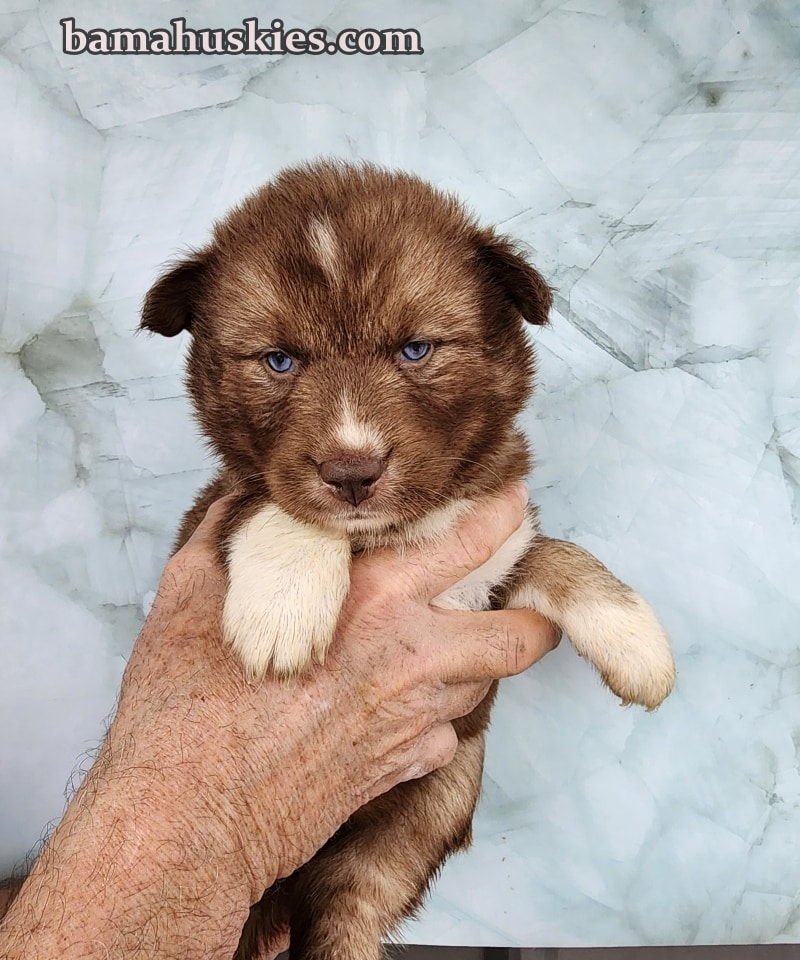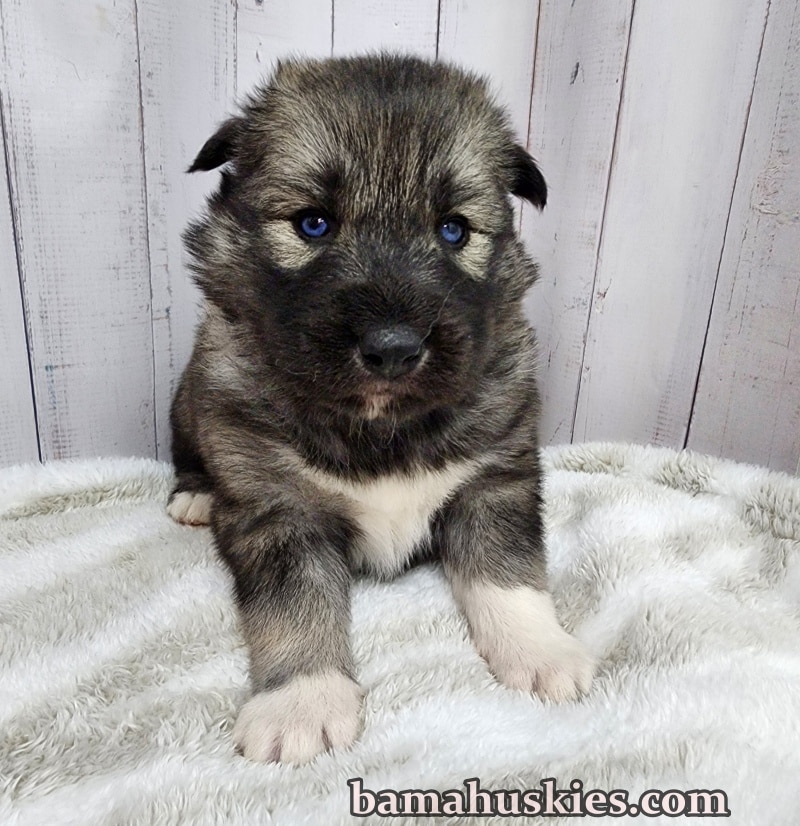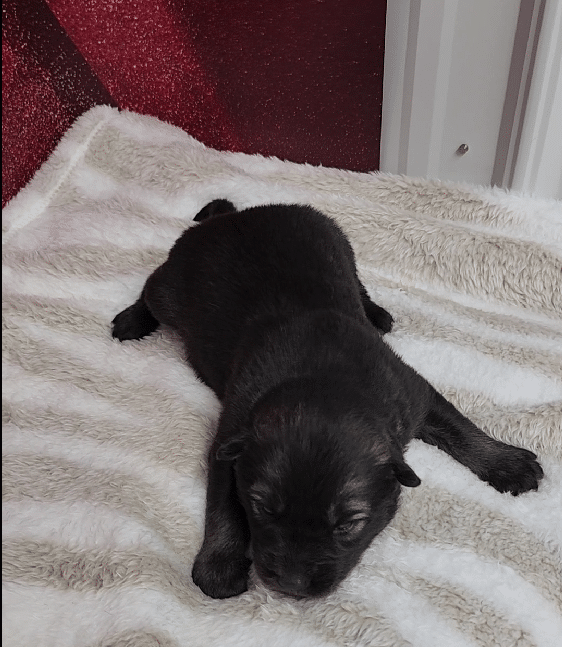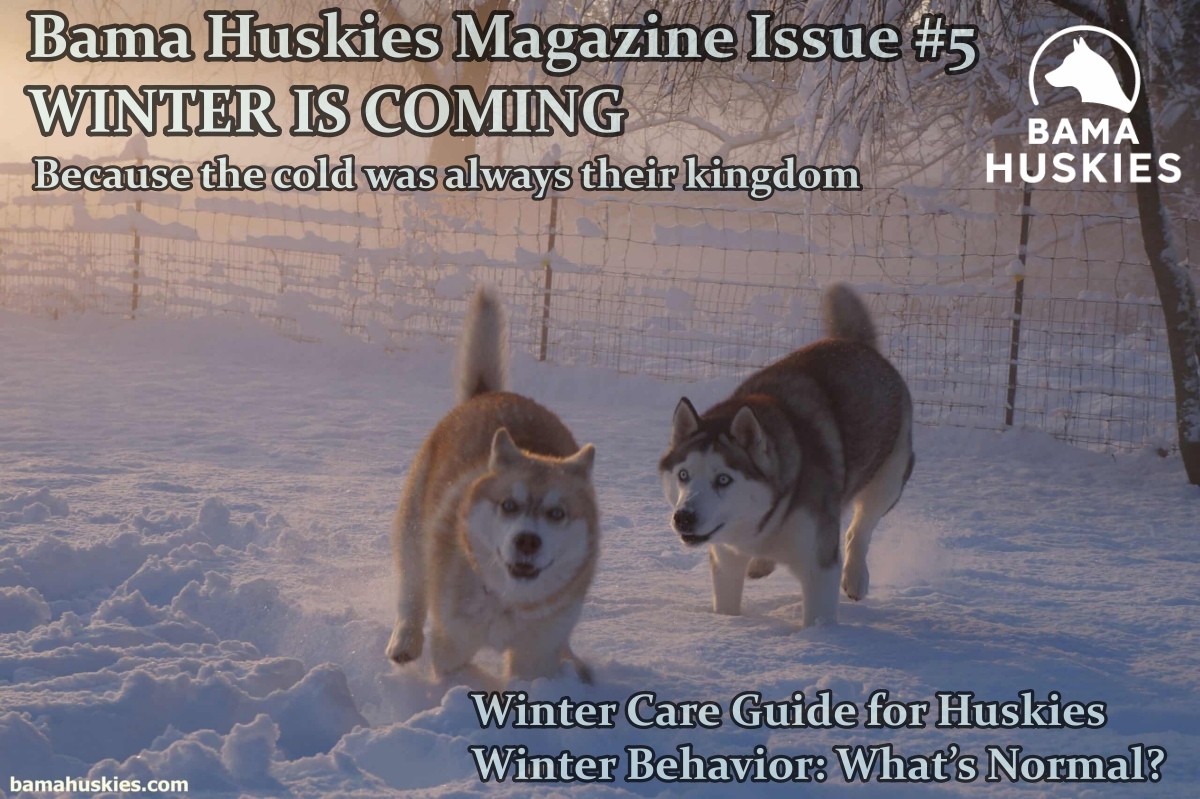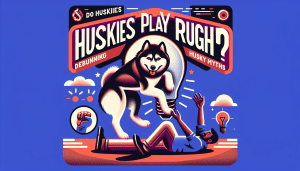
Welcome to our exploration of one of the most captivating canine breeds, the Siberian Husky. Rich in history and with an undeniable athletic prowess, Huskies have graced the American Kennel Club’s roster since 1930. Originating from Northeast Asia as resilient sled dogs, they’ve captured hearts with their vivacious spirit and iconic appearance. Today, we’re delving into a specific query that puzzles many—do Huskies play rough?
As a breed standing proud at 20-24 inches and tipping the scales between 35-60 pounds, Huskies boast a healthy lifespan of 12-14 years. Their signature thick double coats, which come in a palette of black, gray, white, and tan, are accentuated by striking facial masks and captivating blue or multi-colored eyes. Beyond their stunning exterior, Huskies exude intelligence, alertness, and a friendly demeanor, though their independent nature can sometimes be a hurdle for novice dog owners.
In this article, we’ll demystify the common misconceptions surrounding the Siberian Husky’s behavior, including the often-debated topic: do Huskies play rough? Join us as we debunk myths and shed light on what truly makes a Husky thrive in a home environment. Whether you’re concerned that your dog plays too rough at the dog park, your puppy plays too rough, or your dog plays too aggressively with other dogs, we’re here to offer insights and solutions. Get ready to separate fact from fiction as we journey into the world of these fascinating animals.
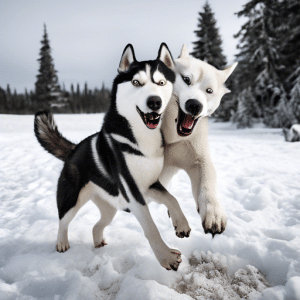
Venturing beyond the shimmering blue eyes and wolf-like allure of the Siberian Husky, we encounter a trove of misconceptions that often overshadow this breed’s true nature. I’ve spent time with numerous Huskies being a breeder, and can attest to their warm character and the myths that do them a disservice.
Siberian Huskies are not wolf-hybrids
Firstly, Siberian Huskies are not wolf-hybrids as many believe. Despite a lupine appearance, they are domesticated dogs sharing 99% of their DNA with other dog breeds, hardly any closer to wolves than your typical Labrador or Beagle. This common myth stems from their striking resemblance to their wild cousins, yet behaviorally and genetically, they are true canines through and through.
Then we approach the subject of climate adaptability. The thick, dense, double-coat of a Husky might seem like a built-in winter jacket, suitable only for the frostiest of habitats. However, these resilient creatures can, in fact, adapt to warmer climates, provided they are given proper care and kept cool during the heat. This adaptability stems from their undercoat, which insulates them against different temperatures, and their coat should never be shaved since it’s their natural defense against both heat and cold.
Do Huskies play rough?
The sociable nature of Huskies often leads to a concern regarding playfulness: do Huskies play rough? Let’s set the record straight—Siberian Huskies are congenial, friendly, and sociable, not prone to aggression or dangerous behavior. Their playful interactions are often misconstrued as rough, when in reality, they are exhibiting the spirited play typical of their breed. Proper training and socialization are key in guiding their enthusiasm. Huskies respond remarkably well to positive reinforcement, patience, and consistency.
For those wondering if their dog’s behavior is normal, the tell-tale signs emerge when my dog plays too rough at the dog park, my puppy plays too rough, or my dog plays too aggressively with other dogs. While it’s essential to monitor playtime to ensure safety, remember that Huskies are animated by nature. Their rough play should not be immediately interpreted as aggression—instead, it’s often a sign of their joy and high spirits. Teach them gentle play through positive training methods, and reinforce behaviors that are appropriate for safe interactions with humans and other pups. They are intelligent and trainable; with confident consistency, they can learn the ropes to fit perfectly into any dog park scenario.
We have only begun to scratch the surface in breaking down the fables that cloud the reputation of these majestic dogs. By understanding the facts, we celebrate the Siberian Husky for what it truly is—an affectionate, mischievous, and utterly captivating breed that makes both a loyal companion and a delightful playmate. Let’s usher in a new era where the myths are dispelled and the playful Husky spirit is embraced and understood.
Conclusion
In conclusion, the Siberian Husky, often enveloped in a shroud of mystery and folklore, emerges as a breed that is friendly, sociable, and full of life, rather than one that plays rough. As we have explored, these intelligent and remarkable dogs require consistent training and socialization to channel their high energy into positive interactions. The key takeaway is that their boisterous play, though sometimes misunderstood, is an expression of their exuberant character, not aggression.
Recognizing and celebrating the true nature of the Siberian Husky allows us to dispel the myths that surround them and appreciate their genuine companionship. By properly caring for and understanding Huskies, owners can ensure that the breed’s vivacity is experienced as joyful enthusiasm. The positive reinforcement and patient guidance that owners provide will continue to nurture the Siberian Husky’s standing as an endearing and treasured member of the canine community.
FAQs about Siberian Huskies
While delving into the remarkable world of Siberian Huskies, it’s common to stumble upon questions that reveal a thirst for understanding these distinguished canines. Allow me to address some frequently asked questions that might highlight the intricate tapestry of the Husky’s characteristics and behaviors:

- Are Siberian Huskies Part Wolf? No, contrary to their wild and majestic appearance, Huskies are not part wolves. While they share a striking resemblance that often leads to this misconception, Siberian Huskies are domesticated dogs with behavior and genetics distinct from that of wolves. This myth has been perpetuated due to their visual similarities, but it’s time we appreciate Huskies for the unique breed that they are, friendly and well-adapted to living amongst humans.
- Do Siberian Huskies have a natural aggressive predisposition? They are far from being instinctually aggressive or dangerous. It’s crucial to understand that, like every dog breed, a Husky’s behavior is shaped by a combination of upbringing, training, and socialization. Acknowledging that Huskies have a high prey drive like many other breeds doesn’t mean they can’t be great companions. With the correct approach of consistent training and understanding their social needs, Huskies can be as gentle as any well-trained canine companion.
- Can I let my Husky off-leash in open spaces? In Most cases due to their strong instinct to run and explore, Huskies are not suited for playing Frisbee in the park off-lead. Yes, some can train their husky off leash while others won’t have the skill to do so. Their inclination to chase and relative indifference to recall commands make it necessary to play in secure environments. They require a safely enclosed space, preferably with a high fence, to accommodate their zest for freely sprinting and playing without the risk of escaping or getting into unsafe situations.
Other questions that Husky owners or enthusiasts often ponder include the best ways to deal with their Huskies’ boundless energy and potential for mischief. Here are some insights on these points:
- Huskies are high energy dogs that require regular mental and physical exercise to stay content and prevent hyperactivity.
- When it comes to training, Huskies require clear boundaries and consistency. They respond well to positive reinforcement, making it clear that you are in charge while giving them the structured playtime they need.
- Adding to their diverse and fascinating nature, Huskies may not make the best watchdogs, but they are exceptionally loyal and great companions that thrive on social interaction.
In case you’re concerned that your husky may be too rowdy when playtime comes around, remember, Huskies are boisterous by nature—this doesn’t necessarily equate to rough play. If you find yourself saying “my dog plays too rough at the dog park,” it might be a sign of their high spirits rather than aggression. Channeling this exuberance is possible through regular guidance and persistent training. It may also be helpful to discuss common training challenges with fellow Husky owners or a professional trainer.
Prime example of 2 huskies playing rough
&
Finally, let’s touch upon Husky health and well-being, which are essential topics for any potential or current owner. Proper nutrition, regular veterinary check-ups, and an understanding of the Husky’s physical and social needs go a long way in ensuring your furry friend remains a happy and healthy part of your life. Embracing their pack mentality means acknowledging that Huskies flourish in the company of others, whether that’s with humans or their canine counterparts.
It’s clear that the enchantment surrounding Siberian Huskies is not without its array of questions. By weaving through these FAQs with care and curiosity, we can continue to debunk myths about Huskies, especially when it comes to understanding their robust, playful nature and ensuring that expressions like “do huskies play rough” are contextualized within the mosaic of their charismatic personalities.

